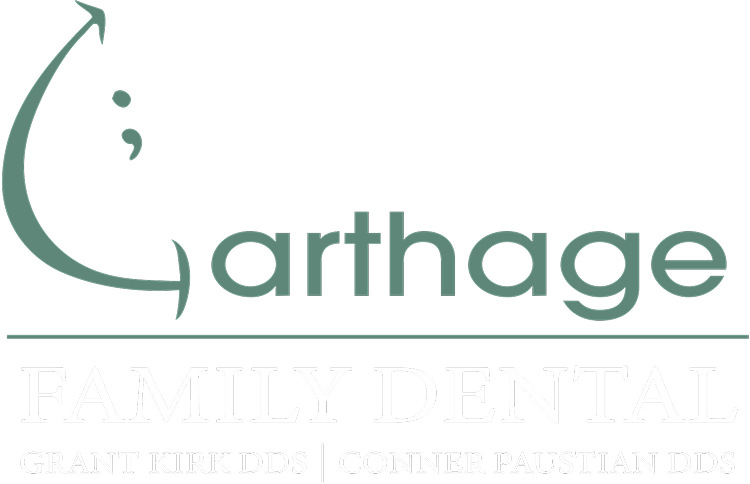
TMJ Treatment in Carthage, MO
Jaw discomfort can make everyday activities—like eating, speaking, or even smiling—challenging. For many, this pain is caused by a TMJ disorder. The temporomandibular joint (TMJ) connects your jawbone to your skull and allows smooth movement of the jaw. When it isn’t functioning properly, it can significantly impact your quality of life. At Carthage Family Dental in Carthage, MO, we provide personalized solutions designed to restore comfort and relieve TMJ-related pain.
A Guide to TMJ Disorders
A TMJ disorder occurs when the jaw joint or surrounding muscles become strained, irritated, or misaligned. This can cause pain that radiates beyond the jaw to the head, neck, and shoulders. Symptoms vary—some people experience occasional discomfort, while others face daily challenges. Early treatment can help prevent long-term issues and restore natural jaw function.
How to Tell if You Have a TMJ Disorder
TMJ symptoms can range from mild discomfort to persistent pain. Common signs include:
- Jaw pain or stiffness that worsens with movement
- Clicking, popping, or grinding sounds when opening or closing the mouth
- Headaches or earaches related to jaw tension
- Difficulty chewing or fully opening the mouth
- Facial soreness or pressure near the jaw joint
If you recognize these symptoms, seeking TMJ treatment can provide meaningful relief and improve your quality of life.
What Leads to TMJ Disorders
TMJ disorders often arise from multiple factors, making each case unique. Common causes include:
- Teeth grinding or clenching, which puts constant pressure on the jaw joint and surrounding muscles
- Stress, which can tighten facial muscles and trigger unconscious habits like jaw clenching
- Injuries to the jaw, face, or neck that damage the joint or affect its alignment
- Arthritis, which can wear down the joint cartilage and reduce smooth movement
- Bite problems or misaligned teeth, placing extra strain on the jaw
Understanding these potential causes helps guide effective, personalized TMJ treatment, ensuring care is tailored to each patient’s specific needs.
How TMJ Disorders Are Treated
TMJ treatment aims to relieve pain, restore smooth jaw movement, and prevent further stress on the joint. Care typically begins with conservative approaches, focusing on comfort and function. Common treatments include:
- Oral appliances such as night guards or stabilization splints to reduce pressure and protect teeth from grinding or clenching
- Bite adjustments, orthodontic care, or prosthetic solutions to improve alignment and jaw balance
- For severe or persistent cases, advanced treatments like injections or surgery may be considered
Self-care also plays a key role in managing TMJ disorders. Helpful strategies include:
- Eating soft foods and avoiding activities that strain the jaw
- Practicing relaxation techniques and applying hot or cold packs
- Performing dentist-recommended exercises to strengthen and relax jaw muscles
- Using over-the-counter pain relievers, with prescription medication if necessary
A personalized combination of professional care and at-home management can significantly reduce discomfort and improve jaw function.
